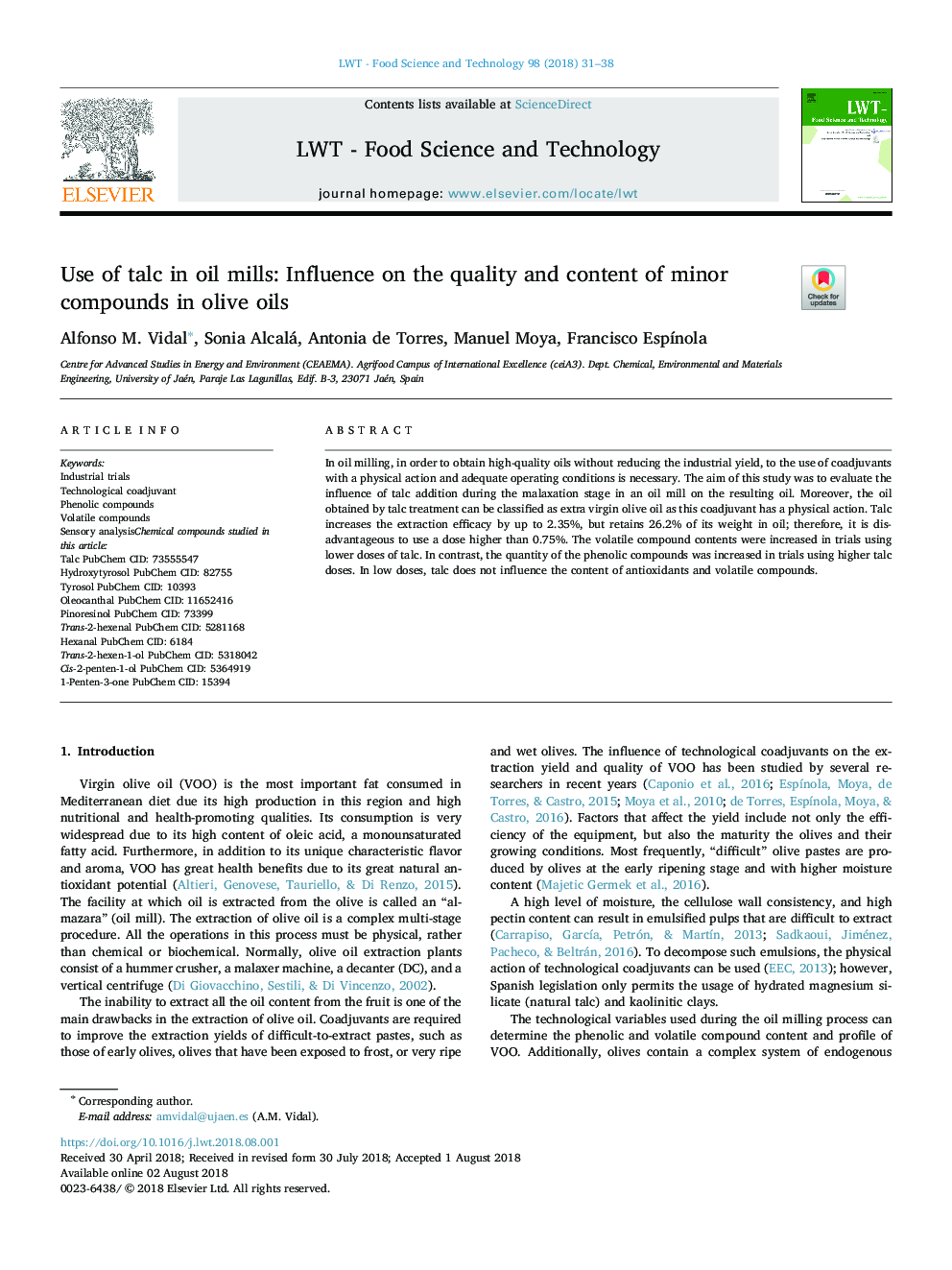| Article ID | Journal | Published Year | Pages | File Type |
|---|---|---|---|---|
| 8946216 | LWT - Food Science and Technology | 2018 | 8 Pages |
Abstract
In oil milling, in order to obtain high-quality oils without reducing the industrial yield, to the use of coadjuvants with a physical action and adequate operating conditions is necessary. The aim of this study was to evaluate the influence of talc addition during the malaxation stage in an oil mill on the resulting oil. Moreover, the oil obtained by talc treatment can be classified as extra virgin olive oil as this coadjuvant has a physical action. Talc increases the extraction efficacy by up to 2.35%, but retains 26.2% of its weight in oil; therefore, it is disadvantageous to use a dose higher than 0.75%. The volatile compound contents were increased in trials using lower doses of talc. In contrast, the quantity of the phenolic compounds was increased in trials using higher talc doses. In low doses, talc does not influence the content of antioxidants and volatile compounds.
Related Topics
Life Sciences
Agricultural and Biological Sciences
Food Science
Authors
Alfonso M. Vidal, Sonia Alcalá, Antonia de Torres, Manuel Moya, Francisco EspÃnola,
